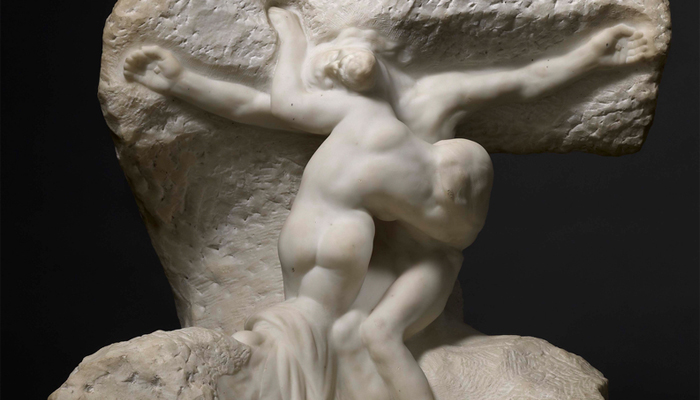Note: If you wish to receive, via e-mail, (1) my weekly newsletter or (2) daily copies of these posts, notify me at rrbates1951@gmail.com and indicate which you would like. I promise not to share your e-mail address with anyone. To unsubscribe, send me a follow-up email.
Sunday
As yesterday was Mary Magdalene’s Feast Day, I share a Rilke poem about the woman who was both a follower of Jesus and a wealthy patron. Over the centuries, for problematic reasons, Christians have conflated her with the adulterous woman whom Jesus saved from stoning and the sinning woman who bathed Jesus’s feet with tears. There is no question that she was one of the women at Jesus’s tomb, however, and in “The Pieta,” which appeared in Rilke’s Magdalene sequence, he has her cradling the crucified Christ. The poem may have been inspired by Rodin’s “Christ and Mary Magdalene” sculpture, which itself is a play on Michelangelo’s famous sculpture.
In Rilke’s version, the cradling is sensual, not motherly. Magdalene at last gets what she has wanted—to hold Jesus in her arms—but the crucifixion has also robbed her. She wants Jesus for herself exclusively and so bridles at how he has given his love to the whole world. “Your heart is open to the passerby:/ none should have entered there, save only I,” she laments jealously.
Death and sexual passion become bound up together in Rilke’s haunting vision. The poem is tender, heartbreaking, and perhaps somewhat disturbing.
The Pieta
By Rainer Maria Rilke
So once more, Jesus, I behold your feet,
feet that long since my pitiful hands laid bare,
to wash them,—then they seemed a boy’s, I thought;
how they stood tangled in my covering hair,
like a white wild thing in the briers caught.
For the first time, this night of love, your sweet
and never-cherished limbs are mine to know.
I never warmed them with my body’s heat,—
now I may only watch them, thus brought low.
But look, your hands, your wasted hands, are torn:
Beloved, not by me, with passion’s thorn.
Your heart is open to the passerby:
none should have entered there, save only I.
Now you are tired, your mouth, that tired flower,
has no desire for my mouth of woe.—
When, Jesus, Jesus, O when was our hour?
Strangely together to our doom we go.


